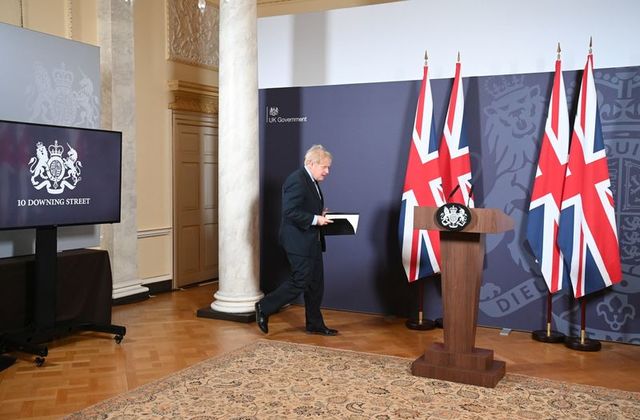Speaking in an interview with the website of the Strategic Council on Foreign Relations, Morteza Makki referred to the historic agreement reached on December 24 between Britain and the European Union on the rules governing over relations between the two sides in the post-Brexit and said: After the referendum on Brexit, one of the most serious questions raised in that referendum was how Britain intends to leave the EU. In fact, the main question was whether the exit would be done with an agreement with the European Union or without an agreement?
According to Makki, during Britain’s 43-year presence in the European Union, all of its economic, financial, legal and judicial structures were regulated within the EU standards, and Britain enjoyed the benefit of being present in the EU within the single European market and customs union.
The expert continued by saying: Britain had to decide how to leave the EU without losing the interests of trade with the member states because; more than 50 percent of London’s trade is with the European Union, which is estimated at around 900 billion euros a year.
Makki believes that since Britain is considered to be one of Europe’s great economic and military powers, leaving without an agreement could have far-reaching consequences for the EU member states.
He noted: Some of the EU countries, such as Ireland or Denmark, have a large part of their trade and economy dependent on Britain. That is why both the European Union and Britain have been trying over the past few years to reach a comprehensive agreement by postponing London’s exit from the Union.
Referring to the deep differences between the EU and Britain, the expert on European affairs stressed that these differences had raised many concerns over not reaching an agreement. On the one hand, Brussels did not want Britain’s exit from the EU to be easily modelled by other countries, and on the other hand, Britain did not want to reach an agreement with the EU that would remain governed by the EU rules and regulations after withdrawal because in that case, Brexit would practically become a neutral and useless issue.
The expert stressed that in the one week remaining until the end of the British transition period from the European Union after leaving the EU on January 31, 2020, the two sides finally reached a 2,000-page agreement to regulate relations between London and Brussels after the end of December 2020.
Referring to the differences between Brussels and London, Makki continued: The most important issues in the negotiations in recent weeks have been those of European fishing off the coast of England, the Supreme Court’s oversight of British and EU litigation and the issue of customs tariffs.
The expert elaborating on the agreement reached in this regard said: On the issue of fishing off the coast of England, the two sides agreed that for the next five and a half years, the Europeans would have the right to fish on the British coast, and London would have the right to continue to have seafood and export it to the European countries.
The issue of customs tariffs was also resolved in this agreement, and British exports and imports with the European Union will remain tariff-free. On the issue of the supervision of the Supreme Court of Europe over British litigation, the two sides also agreed that the Supreme Court should not oversee the litigation of the two sides and that the litigation should be settled in international institutions. The agreement also partially resolved the issue of the borders of the two Irelands and transportation of goods, capital and citizens.
Finally, about the political and economic consequences of Britain’s withdrawal from the EU, Makki said: The agreement reached between the EU and Britain, although has put an end to some challenges between the two sides on how Britain should leave this agreement will certainly entail political, economic and sovereignty consequences for London.
Scottish First Minister Nicholas Estrogen later criticized the government of Boris Johnson for calling a second independence referendum. In financial and economic terms, although an agreement was reached between the Union and Britain, London will lose many of its trade and financial advantages in Europe and in the world with this agreement in the medium and long term. At the same time, about 80 percent of the British economy is legal, monetary and financial services, and British companies, as before, cannot easily trade with the EU and need to get a license from the EU member states or the EU itself.
He stressed: Politically, too, Britain will not be able to easily reach free trade agreements with other countries that would be a substitute for the European Union. During Donald Trump’s term, London hoped to sign a free trade agreement with the United States, but the US under Joe Biden would be in no hurry to sign such an agreement with Britain.










0 Comments